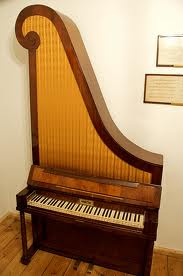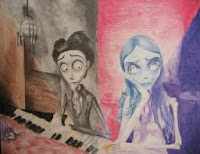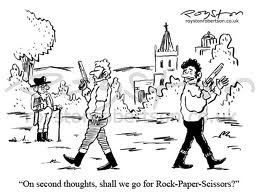I read recently several posts offering birthday greetings to Chopin. At first I felt really guilty that the date had come and gone and I had forgotten to notice, not that I had noticed in the past, but it occurred to me that the act of noticing can be a way of participating in the composer's legacy. But then there it was in black and white, or rather back-lit on my computer screen, the following: "I love Fred but he is rather overrated."
I really don't understand this. What is overrated? Surely not the B minor sonata or the set of ballades, which were completely original at the time; surely not the collection of noctures, an imaginative development of John Field's opera in the same vein. Well, okay, don't get me started. Chopin wrote music that was startlingly original, music that advanced the level of piano playing and created new ways of thinking about sonority. It seemed at the time (almost) to come from nowhere and there was no Chopin school to follow, so he remains unique to this day. I think Schumann was right in his initial review of Chopin's debut: "Hats off, gentlemen, a genius."
Even those who call his work high-class salon music are mistaken. There is considerable depth to be found in those shimmering sonorities if you just listen past the surface.
There ensued much discussion on the topic of offering birthday greetings to a dead person. I believe the word inane was used.
Well, of course, if that were all there is to it, it would be just so much silliness. The act of remembering, though, is what is at issue and that is for the living. The music is very much alive and a part of our collective consciousness. To pause and reflect on this and the work of a great artist is how we grow, how we live.
The following is from an article I found at the Chopin Society Uk and helps to explain, if not resolve, the mystery of Chopin's birth:
"The mystery of Chopin's birthday
The Manor of Zelazowa Wola
 Fryderyk Chopin was born at Zelazowa Wola in Mazovia, in the Warsaw region of Poland. Fryderyk Chopin was born at Zelazowa Wola in Mazovia, in the Warsaw region of Poland.
His father Nicholas had been born in France in 1771 in Marainville, a village in Lorraine – a area which at that time was ruled over by the Polish King Stanislas Leszczynski.
Nicholas, of humble origin, but very able and intelligent, had accompanied the Polish agent of his village to Warsaw in 1792, and from then on identified totally with Poland, preferring to speak Polish rather than French.
In 1802 Nicholas Chopin was engaged by Count Skarbek to be tutor to his four children at his estate of Zelazowa Zola, and in 1806 he married a poor relation of the family, Justyna Krzyzanowska, then living with the Skarbeks and acting as their housekeeper. The couple had a daughter in 1807 and then moved out of the main house into a thatched cottage close by, where their only son was born on possibly the 22nd of February and possibly the 1st of March 1810.
 The child was named Fryderyk after Fryderyk Skarbek, the Count’s eldest son, who was to be godfather. Actually they had to wait some time to receive the 18-year old Count’s consent, as he was studying in Paris, and when the christening eventually took place on the 23rd April at the parish church of Saint-Rock in Brochów, a proxy stood in for young Fryderyk Skarbek. The date of the birth was duly entered as the 22nd of February in the baptismal register. (It is interesting to note that Chopin’s godfather was to become a distinguished economist, historian and writer, and that he and Chopin became good friends in later life). The child was named Fryderyk after Fryderyk Skarbek, the Count’s eldest son, who was to be godfather. Actually they had to wait some time to receive the 18-year old Count’s consent, as he was studying in Paris, and when the christening eventually took place on the 23rd April at the parish church of Saint-Rock in Brochów, a proxy stood in for young Fryderyk Skarbek. The date of the birth was duly entered as the 22nd of February in the baptismal register. (It is interesting to note that Chopin’s godfather was to become a distinguished economist, historian and writer, and that he and Chopin became good friends in later life).
Despite the date in the parish register, Chopin’s family always celebrated his birthday on the 1st of March.
 To complicate things further, Jane Stirling – his Scottish pupil and benefactor – said that Chopin had told her she was the only one who knew his real birth date. She wrote it down, put it in a box, and this box was apparently placed in Chopin’s grave in the Père Lachaise cemetery in Paris. To complicate things further, Jane Stirling – his Scottish pupil and benefactor – said that Chopin had told her she was the only one who knew his real birth date. She wrote it down, put it in a box, and this box was apparently placed in Chopin’s grave in the Père Lachaise cemetery in Paris.
Some sense can be made of this. In the nineteenth century people were much more vague about actual birthdays than we are today, and in a Catholic country such as Poland the name day would have been just as important, if not more so. However, in Britain it is the birthday which counts, and one can imagine Jane Stirling asking her beloved Master when his birthday was, so she could give him a present. He may have told her, adding that she was not to tell anyone else, as he did not want a lot of fuss.
Whether the writing in Jane’s box would even be legible now is dubious, so even if it is the real date we may never know the truth.
The Chopin Society celebrates the 22nd of February, as our Founder, Lucie Swiatek, favoured that date, though generally the 1st of March is more frequently regarded as correct."
I am absolved of guilt. Since the day is in question, it matters little if I observed the correct one. What matters is that I remember, which I do as I play and teach his music.
|
 There is really no such thing as "sight reading." Sight reading consists of learning to recognize already familiar patterns that are put together in different ways, very much like the way letters are put together to form words. This sounds like evasion, I know, but if you consider the topic with this idea in mind, you will conclude that the best way to learn to sight read well is to do it on a regular basis.
There is really no such thing as "sight reading." Sight reading consists of learning to recognize already familiar patterns that are put together in different ways, very much like the way letters are put together to form words. This sounds like evasion, I know, but if you consider the topic with this idea in mind, you will conclude that the best way to learn to sight read well is to do it on a regular basis. 1. Scan the piece before playing, noticing the composer's directions and any oddities, i.e., accidentals, tempo changes, etc.
1. Scan the piece before playing, noticing the composer's directions and any oddities, i.e., accidentals, tempo changes, etc. 3. Set that tempo and don't stop for anything. If you have trouble, go to the next beat or next measure, but keep the pulse going. Teacher/student duets are great for this and there are many such collections: Diabelli Op. 149 & Op. 163; Four Centuries of Piano Duet Music by Cameron McGraw in four volumes and graded for difficulty. These are not transcriptions, but rather original pieces for piano duet.
3. Set that tempo and don't stop for anything. If you have trouble, go to the next beat or next measure, but keep the pulse going. Teacher/student duets are great for this and there are many such collections: Diabelli Op. 149 & Op. 163; Four Centuries of Piano Duet Music by Cameron McGraw in four volumes and graded for difficulty. These are not transcriptions, but rather original pieces for piano duet.

















